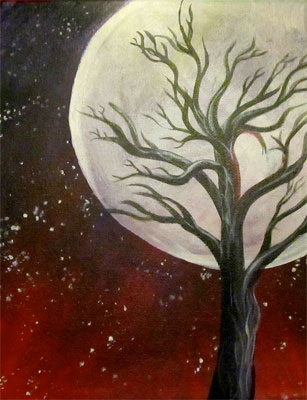All Nonfiction
- Bullying
- Books
- Academic
- Author Interviews
- Celebrity interviews
- College Articles
- College Essays
- Educator of the Year
- Heroes
- Interviews
- Memoir
- Personal Experience
- Sports
- Travel & Culture
All Opinions
- Bullying
- Current Events / Politics
- Discrimination
- Drugs / Alcohol / Smoking
- Entertainment / Celebrities
- Environment
- Love / Relationships
- Movies / Music / TV
- Pop Culture / Trends
- School / College
- Social Issues / Civics
- Spirituality / Religion
- Sports / Hobbies
All Hot Topics
- Bullying
- Community Service
- Environment
- Health
- Letters to the Editor
- Pride & Prejudice
- What Matters
- Back
Summer Guide
- Program Links
- Program Reviews
- Back
College Guide
- College Links
- College Reviews
- College Essays
- College Articles
- Back
Anti Inner Conflicts Book report
Have you ever felt anxious, fear, and depressed? I think many people will say yes, and so did I. I was confident, and thought I had a strong mental endurance and stability until I read the book called Anti Inner Conflicts by Dejian Yu, who developed many mental training skills known of their effectiveness. This book examines why reducing inner conflicts is essential to the quality of daily life. This book also introduces methods from theories to real life experiments to enable one’s improved mental health.
“The crises you faced are not external, They’re all actually internal.” Just like JidduKrishnamurti said, the study of brain neurophysiology shows that the human is essentially emotional-based instead of rational. The book points out that Dr. Barrett, an American neuropsychologist who has been studying human brains for nearly three decades, believes that emotions are not products of the brain's neural circuits. Rather, they are the products of our thought process. That means emotions are completely created by us and not by external conditions. Proving that attributing mental pain to external conditions is useless, because different stimuli, modes of thinking and perspectives can lead to very different mental outcomes. It is as I’ve always believed: what matters most to our brains are not the facts, but the meaning we imposed on the facts. Therefore, different thinking patterns provide different emotions from the same facts and different ways to deal with the facts. It’s crucial to develop thinking patterns that generate fewer negative emotions because mental conflicts only cause pain and a waste of time. When we struggle with ourselves for too long, we can lose control of our lives. The sense of control is one of the ultimate human desires, so when a person loses control over life, the person will fall into inextricable pain and anxiety.
I’ve been plagued by anxiety before; when I have dinner, I always felt very stressed and anxious without a reason. I would suddenly feel very disappointed and down. I think that this is because dinner time freed from my work, making me feel that I was wasting much time. I also felt a lack of energy to do something new as a result. Before I read this book, I thought it was a typical occurrence during the day. However, now I realize that this is actually a prelude to anxiety and needs to be seriously addressed. I have now found different ways to cure my anxiety, and every day is so much easier and chill now.
The first method I used is to self-distance oneself from a bad event through a observational perspective by 1) Finding a comfortable posture and environment, 2) Takingdeep breaths for three minutes and paying attention to the stability and rhythm of your breathing, 3) Reviewing the whole unpleasant event in an observer POV, as if watching a movie, and 4) Continuing to breathe and replay the event until your emotion subsides and you feel more comfortable about this event.
After trying a few times, I find this method works especially well for calming people down, reducing childhood trauma, and the after-effects of an emergent event like a car accident. I used this method when something embarrassing happened, and I want to get over the thing ASAP.
The second method that I highly recommend is called naming conversations with your thinking. You do this by 1) Name the negative emotion that comes and give it a look or personality, 2) Embracing and welcoming the emotion like treating an old friend, then takinga deep breath, 3) Talking to the emotion in your head and making a deal with it, such as: “Hey old friend, you visited me again, but I can't play with you today. I have much work to do, so you stay alone this time,” and 4) Keep doing your work and replaying the whole process if needed.
This technique is my favorite, and my best way to relieve my daily anxieties. When I get anxious, I would say: “Hey, Mr. Anxiety, sorry I can’t hang out with you this time, I got things to do. You should wait for a while.” When I finish my work with a good mood, Mr. Anxiety was always gone because of the waiting. After trying this method a few days, Magically, I don't get anxious anymore. Even if Mr. anxious came again, he won't bother me after I use this method.
I really appreciate the usefulness of this book. I hope that everyone can realize the importance of mental wellness and find a way to live a happier life.

Similar Articles
JOIN THE DISCUSSION
This article has 0 comments.
